Premiership final: Exeter Chiefs & Saracens meet again in inevitable final
- Published
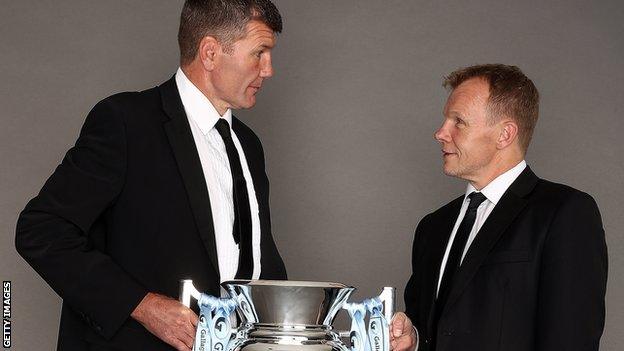
Exeter's Rob Baxter and Saracens' Mark McCall go head-to-head once again in a Premiership final
Gallagher Premiership final |
|---|
Venue: Twickenham Stadium Date: Saturday, 1 June Kick-off: 15:00 BST Coverage: Commentary on BBC Radio 5 Live and BBC local radio and live text, plus score updates on the BBC Sport website and app |
For a competition that prides itself on being "the most exciting club rugby league in the world", the makeup of Saturday's Premiership final was on the cards before a ball was kicked this campaign.
Exeter Chiefs and Saracens meet in the Twickenham showpiece for the third time in four seasons. Between them, they have won the title every year since 2014.
While most clubs have been busy taking points off each other and jostling for position, the top two have been in a league of their own.
"It's the right final - it's the best two teams in England going at it," England and Harlequins scrum-half Danny Care said on the BBC's Rugby Union Weekly podcast.
"Saracens are winning huge games and have coasted to this final. But Exeter will cause them problems."
Both clubs have settled coaching teams, deep squads, strong cultures and clear game-plans.
It promises to be a compelling combination of the physical and tactical.
Stopping the unstoppable
Saracens' record in major finals of late has been without parallel.
Since losing to Northampton Saints in the Premiership final in 2014, the men in black have won their last six deciders, most recently - and perhaps most impressively - against Leinster in the European Champions Cup three weeks ago.

Saracens swept aside Gloucester in their Premiership semi-final
So how to stop the unstoppable? How can Exeter succeed where the best of Europe have failed?
"The Exeter coaches will have planned for this game a long time ago," explained Care. "Listening to the players talk after the semi-final, Exeter aren't going there to lose again."
And, having reached the domestic final for a fourth year in a row, the Chiefs coaching team are not intimidated by the challenge.
"Three European Cups suggests a phenomenal side, which they are," Exeter head coach Ali Hepher told BBC Radio 5 Live.
"But equally they have their weaknesses and areas you can exploit. We have had our wins [against them], so we kind of know what it takes."
Attack v defence
Exeter prosper when keeping hold of possession, especially in the opponents' 22.
But with their ravenous, suffocating defence, Saracens are often happier without the ball, forcing mistakes and attacking greedily off turnovers.
So how do Exeter avoid playing into Saracens' hands on Saturday?
"It's about being smart in the right places - we have to be able to play heads-up," said Hepher. "We can't be so prescriptive that every situation we do the same thing.

Fly-half Joe Simmonds played a pivotal role in Exeter's semi-final win against Northampton
"We are not rigid in what we do, we are very organised. We have got to make the right decisions, keep it simple and play what is in front of us."
Hepher also knows that competing with a massive Saracens forward pack - with the likes of Will Skelton, Maro Itoje and Billy Vunipola - is a non-negotiable.
"You have to match the physicality," he added. "They are going to bring that and we are certainly going to bring that."
Battle of the mind
While Exeter will be gunning for revenge after being dispatched this time last year, Saracens insist they will be mentally sharp, despite it being a maximum 33rd major game this campaign.
"The last eight to 10 games has been a period of real growth. Our group's ability to respond to different situations has been really good," boss Mark McCall told BBC Radio 5 Live.
"We need to go in with a clear mind, see this as a fresh challenge, and be excited by it."
"Exeter will be hurting from the final last year," acknowledged hooker Jamie George. "We are fully aware of what it is going to take."
Rugby Union Weekly's Ugo Monye added: "Saracens find a weakness and go for the jugular.
"I just think Sarries are too big, too strong and too good. They are head and shoulders above not just everyone in the Premiership, but everyone in Europe at the moment."
Salary cap cloud
A league investigation into potential salary cap breaches in 2015 saw "confidential agreements" reached over "certain issues", with Saracens believed to be one of the clubs probed.
Four years later, Sarries are again under scrutiny, with Premiership Rugby revealing in April the four-times champions had not disclosed the full extent of their business deals with leading players.
An enquiry is ongoing, with Saracens owner Nigel Wray insisting these arrangements are a vital step towards helping players with life after rugby.
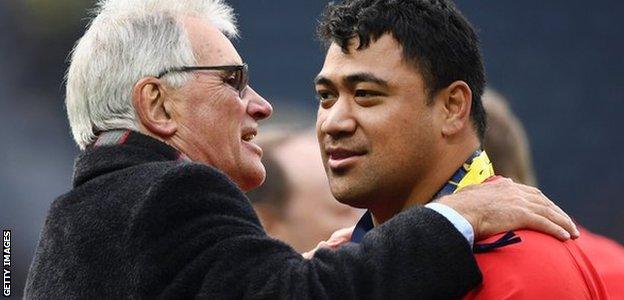
Nigel Wray (left) has faced scrutiny for his ownership of Saracens
But players and coaches from other clubs have privately expressed their unease with the praise lavished on McCall's outstanding side.
Whether because of jealousy or legitimate concerns over fair-play, the neutral is likely to be supporting the Chiefs at Twickenham on Saturday.
More dominance to follow
But what next for the league?
Under new management, Northampton are on the up, growing more and more accustomed to Chris Boyd's leadership.
The same can be said of Johan Ackermann's Gloucester, who are currently the best of the rest, and Paul Gustard's resurgent Harlequins.
But these teams may still be a season or two away from fulfilling their potential.
"We are not good enough to win the league yet, but we might well be in two or three years' time," said Quins' Care. "Saracens are way down that line, and Exeter are exactly the same."
For the likes of the once-giant Leicester Tigers and Bath - both in transition under rookie directors of rugby - it could be five years or more before they can compete again.
So, with coaches committed long-term and a core of key players under 30 - not to mention some high-profile recruits heading to Devon and north London over the summer - the Exeter Chiefs and Saracens duopoly is set to continue for a while yet.
Rugby Weekly Union podcast - listen and subscribe here
For the latest rugby union news follow @bbcrugbyunion, external on Twitter
- Published30 May 2019
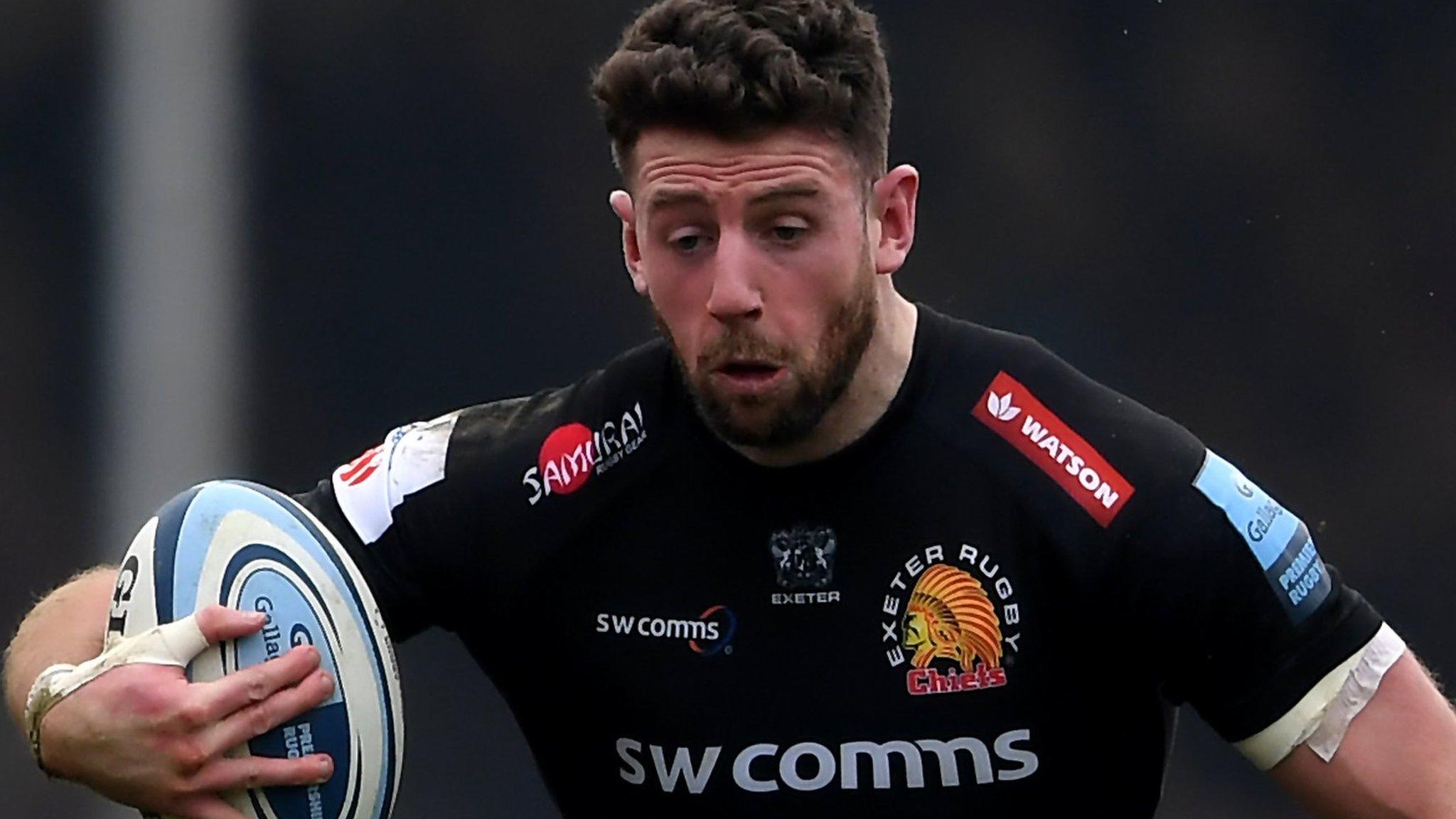
- Published29 May 2019
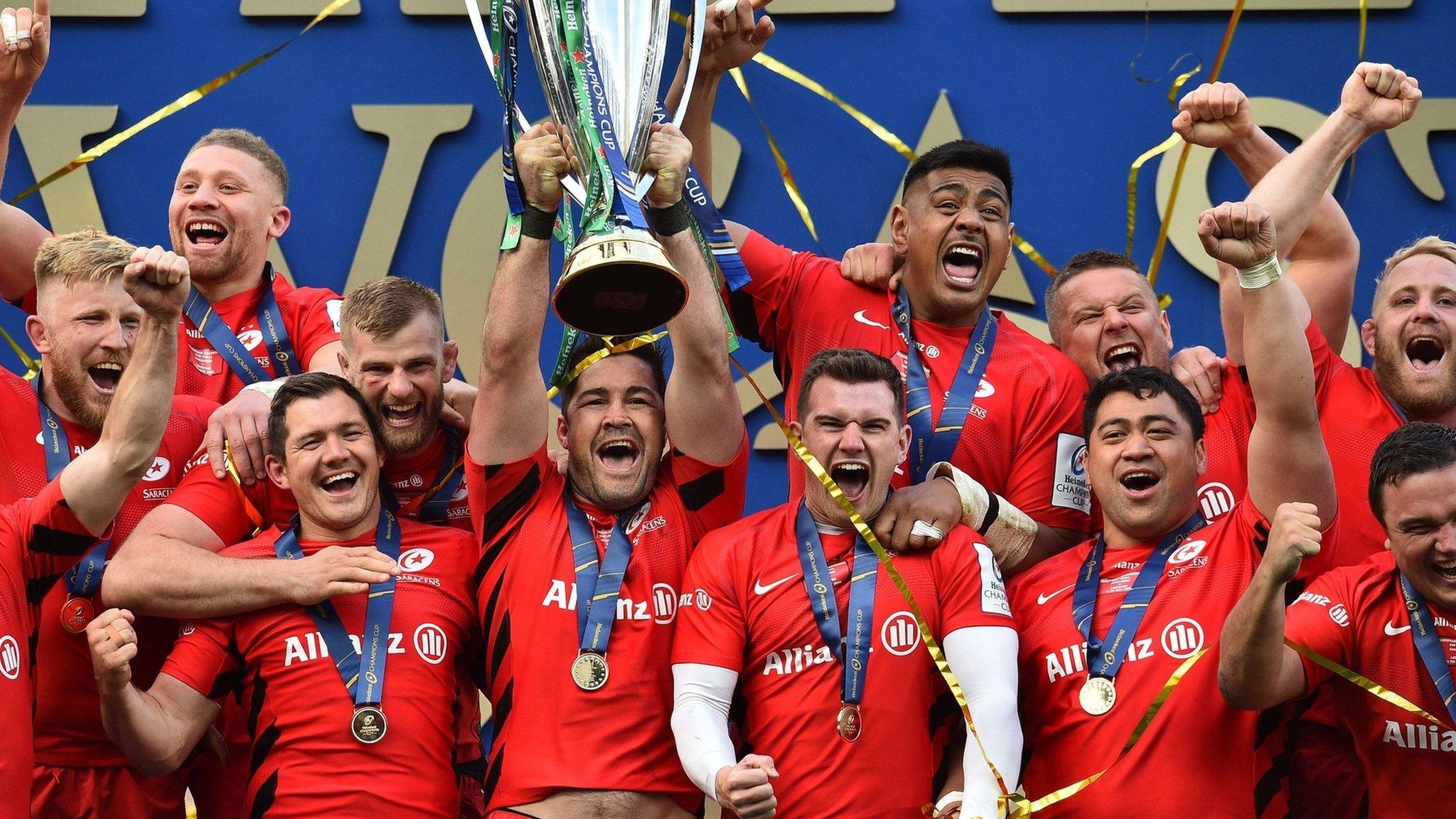
- Published28 May 2019
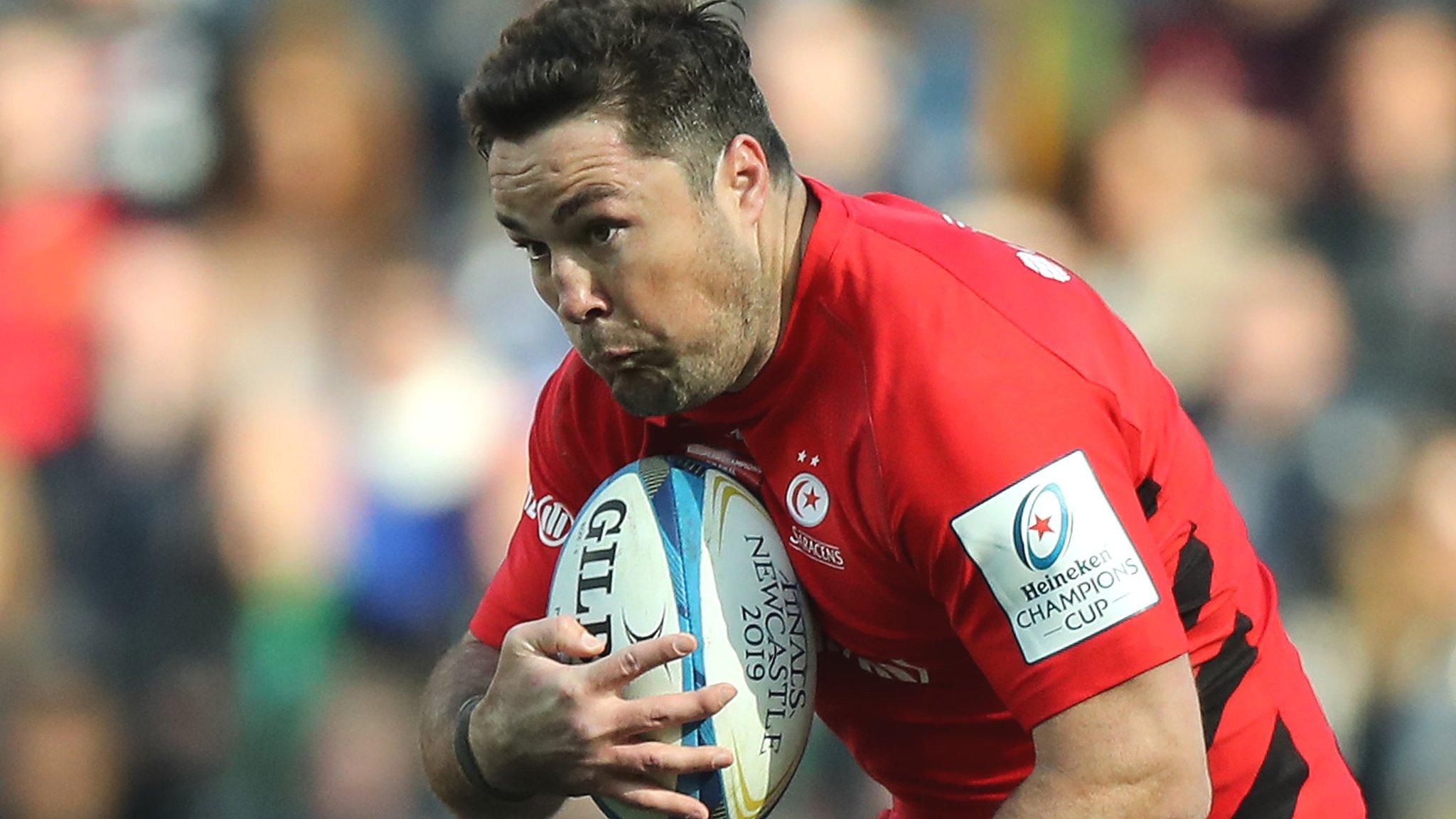
- Published25 March 2018
- Published15 February 2019
